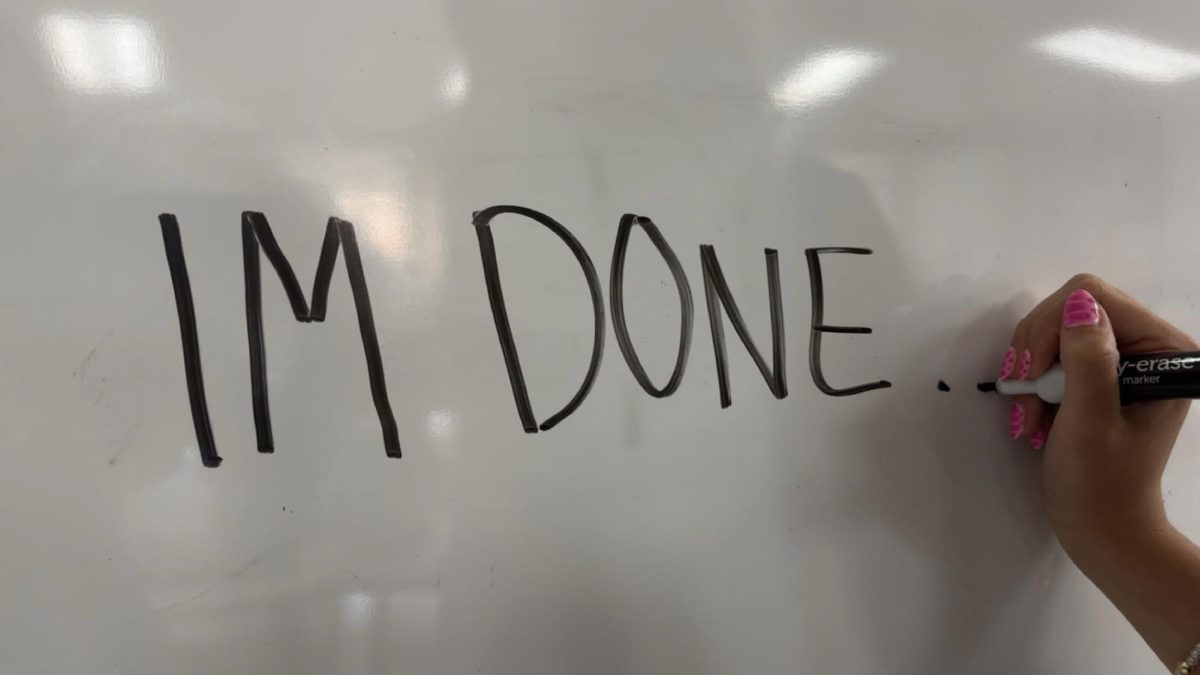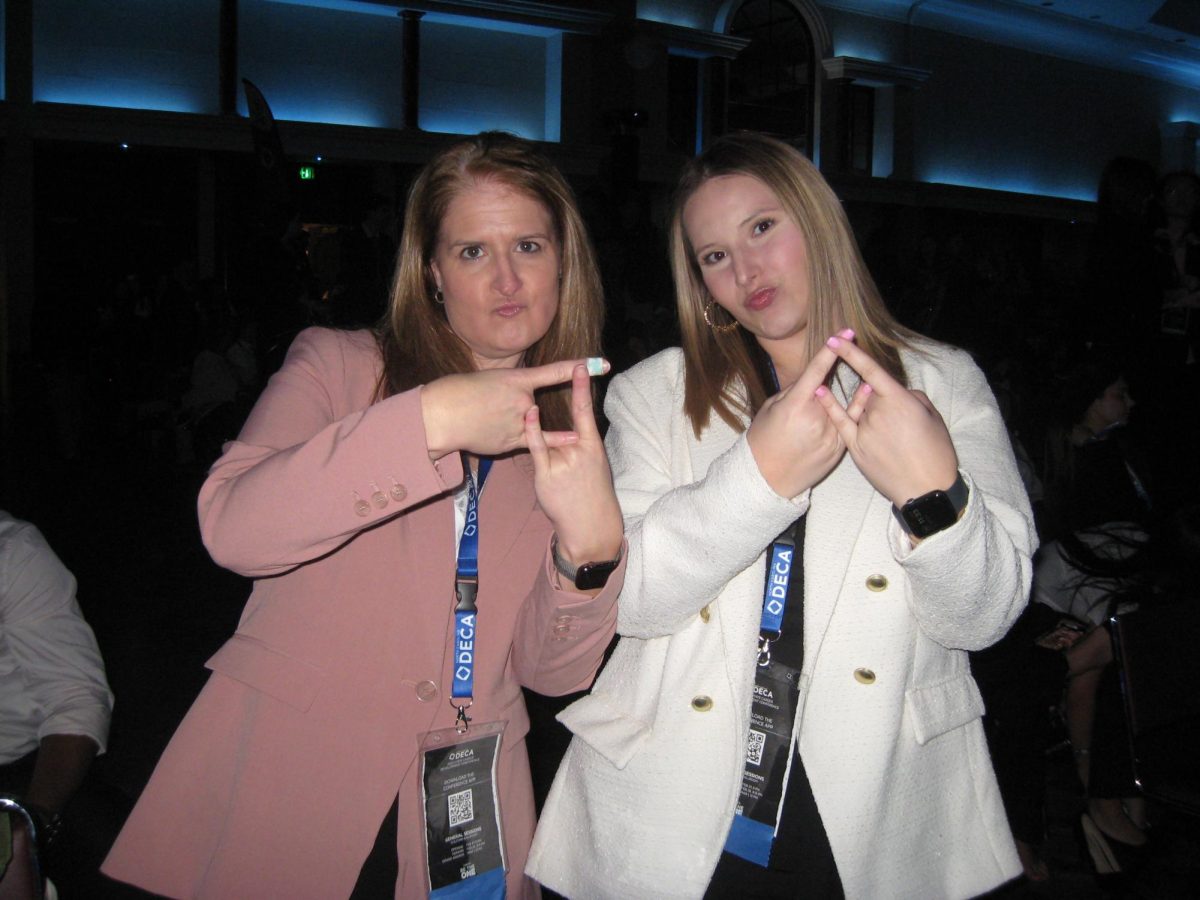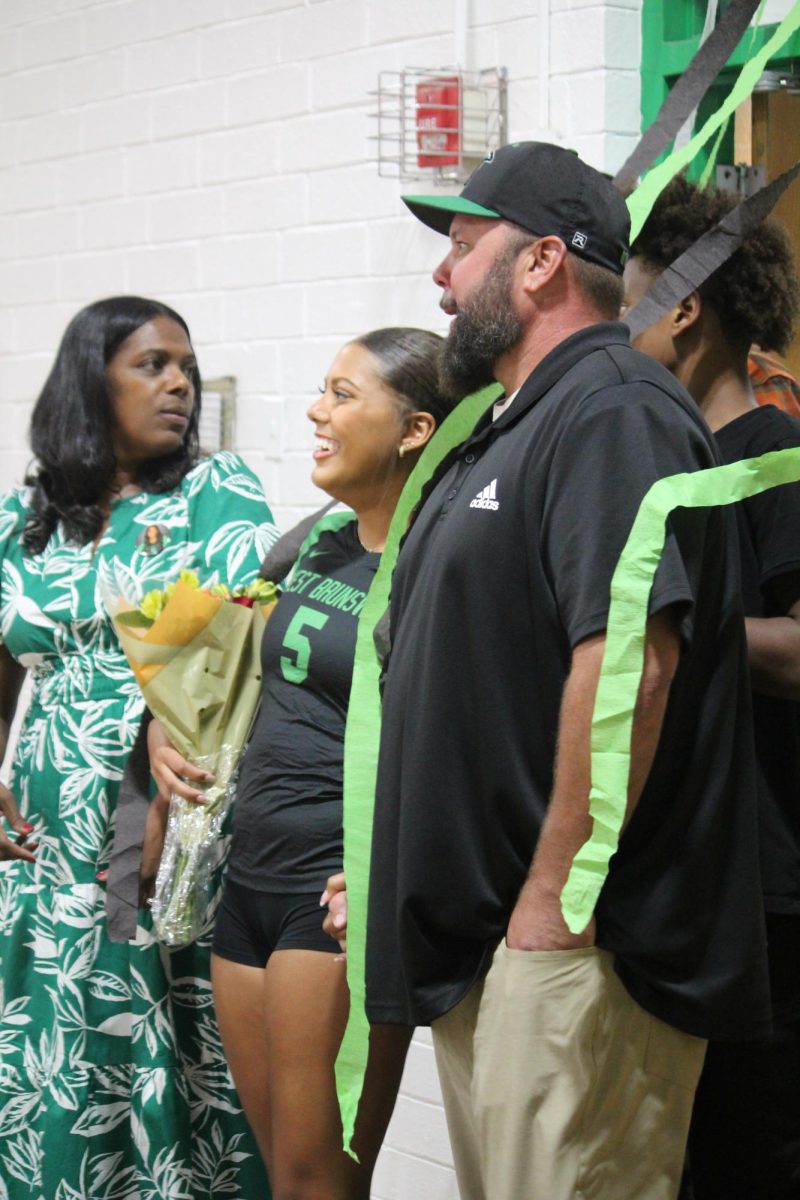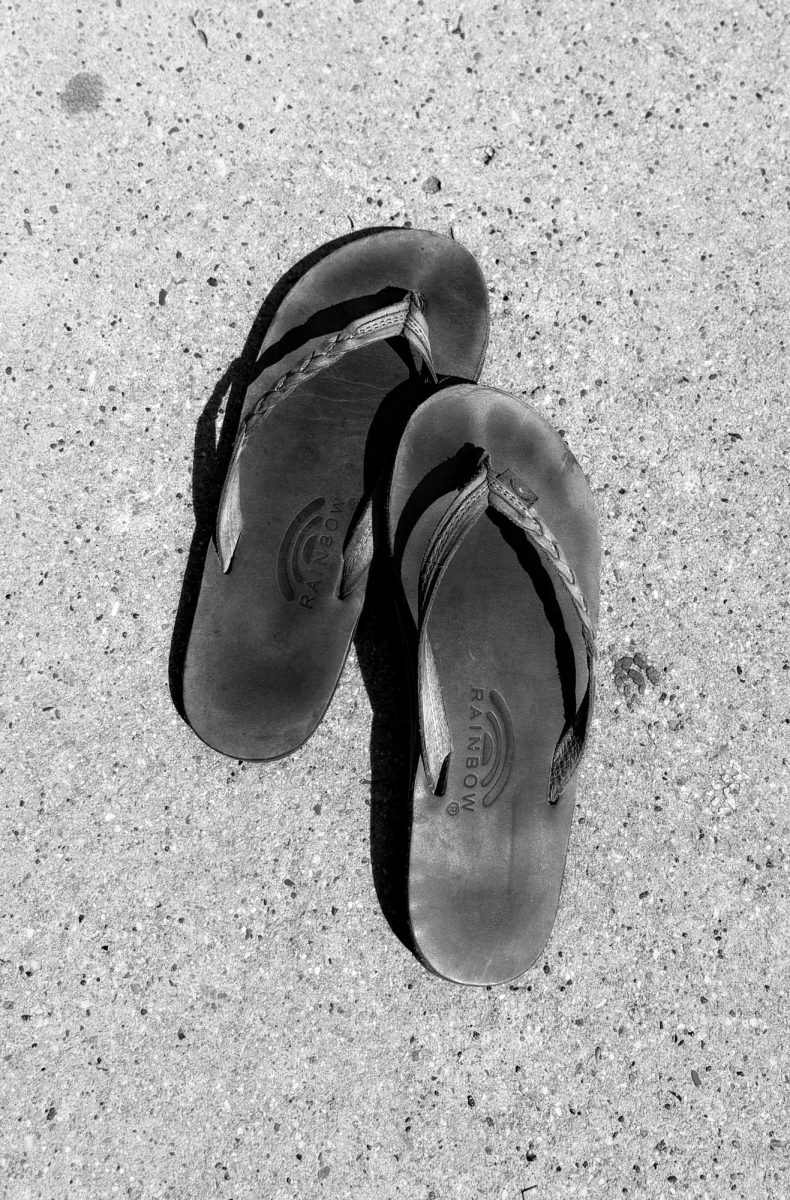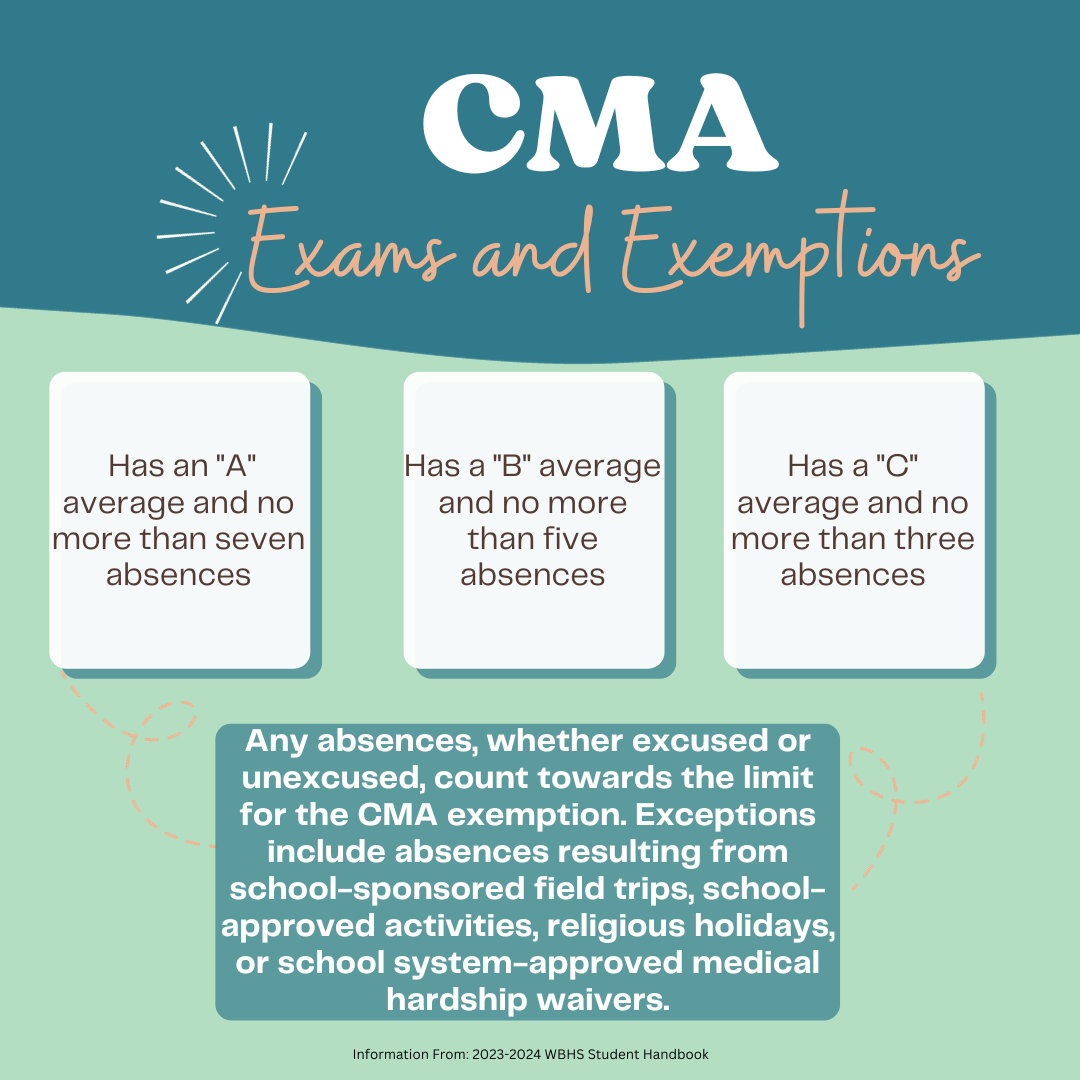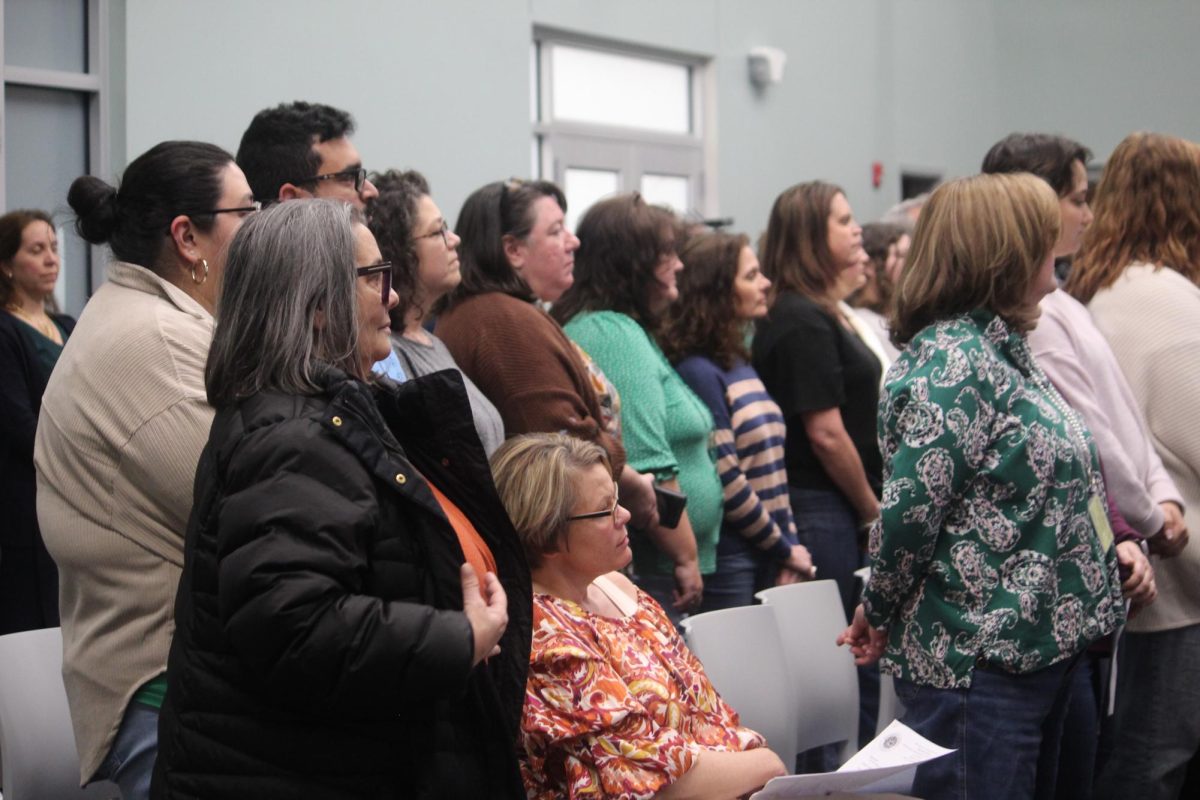A new exam policy was dropped in Brunswick County Schools. For this school year, in classes with no state exam, you may exempt a teacher-made exam, based on your attendance and grade in the class. Teacher-made exams will count as two test grades in the class. This new rule could be seen as motivation to come to school or be seen as a disadvantage to students.
“I think this is a very positive incentive,” said senior Annaliese Whalen. “For me personally, I hate taking those exams. If all I have to do is show up to school more often and try to have fewer absences, then I’m going to come to school more often. There are some instances where I don’t feel my best, and I don’t want to come to school. I’m okay with getting an unexcused absence, but if I can avoid taking a test I’m more likely to come to school.”
Teachers have many different perspectives: they could feel the rule should be stricter, shouldn’t be there at all, or agree with how it is. Teachers benefit because the rule makes some students want to come to class. Better attendance leads to less make-up work and overall not dealing with students being absent all the time.
“If I were a student, it would encourage me,” said Kevin Holland, a history teacher. “I can already tell that I have several kids that say they want to be here to not have to take the exam at the end. If I could enforce this rule in my classroom, I absolutely would. I would like to see the rule include tardies as well.”
Since this is now a Brunswick County rule, each individual school does not have a say. Principal Scott Dalton agrees with the new policy but also thinks it should be stricter. There was a more strict policy in place at his old school, and he saw results because of this. If it were up to him, he would make the new exam and exemption policy stricter not because he wants to punish students by making them come to school when they don’t want to, but because Dalton wants to see students succeed.
“I think part of the reason we are doing CMAs is because there needs to be way to measure student mastery of the content,” said Dalton. “A positive outcome, which is part of the reason we have this, would be to motivate students that might need a little extra incentive to be here. I’ve already heard students talk about wanting to be exempt and wanting to be here.”
One rule with the absences is they still count against you whether they are unexcused or excused with few exceptions. The lack of exceptions may not be fair to some students compared to others. For example, some students may not have the resources or access to get a note from the doctor every time they are sick and want to rest or simply limit the spread of illness.
“For the purpose of an exam, I think it’s fair just simply because there are so many things can count as excused,” said Dalton. “I think it is the best way to hold everybody to the same standard. A doctor’s note can be the reason one student was excused and the other was not.”


